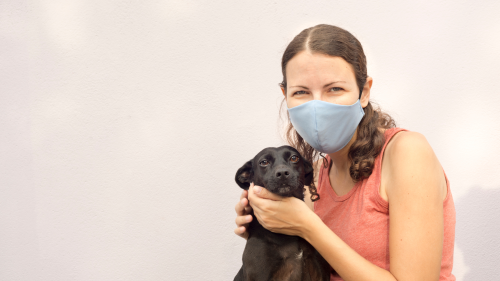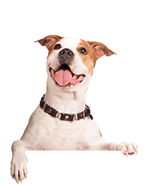Since COVID-19 first emerged, pet owners and pet sitters in Columbus, Ohio have had concerns about whether pets could be at risk. As this virus spread rapidly from human to human, people began wondering if our furry companions could also be affected. In this blog, we’ll explore whether coronavirus poses any real danger to pets and share some practical tips to help you keep both yourself and your beloved animals safe and healthy in these uncertain times.
Can COVID-19 Infect Pets?
Recent cases, including a low-level positive test in a Pomeranian in Hong Kong, have stirred questions among pet parents in Columbus. Animal health experts assure that there’s no evidence that pets can transmit COVID-19 to humans or other animals. While a very small number of pets worldwide have tested positive, these cases remain rare and are not indicative of active transmission.
Should Infected Pets Be Quarantined?
While Hong Kong authorities recommend that pets from households with infected individuals be monitored, it’s not essential to separate infected animals from others. Still, minimizing contact with infected animals may help reduce risks. The CDC has indicated that pets are unlikely to transmit COVID-19 to humans.
Preventing COVID-19 Spread
While there is no vaccine yet for COVID-19, here are some CDC-recommended practices to help Columbus pet sitters and pet parents reduce exposure:
- Stay home if sick: If you’re not feeling well, it’s best to limit contact with others.
- Avoid close contact with those unwell.
- Practice good hygiene: Regularly wash hands with soap and water, and disinfect commonly touched surfaces.
- Limit face touching and practice proper cough/sneeze etiquette.
Hands N Paws’ Commitment to Safety
At Hands N Paws, we’re prioritizing safety as we care for pets daily. Here are some measures we’ve implemented to keep everyone safe:
- Disinfecting Surfaces: Our Columbus pet sitters and dog walkers use disinfecting wipes on frequently touched areas like doorknobs, etc.
- Sanitizing Between Visits: Each team member carries hand sanitizer with at least 60% alcohol for use between appointments.
- Gloves and Masks: We provide our team members with gloves, tissues, and face coverings to reduce transmission risks.
- Clear Sick Leave Policy: We’ve emphasized our sick leave policy to encourage team members to stay home if feeling unwell.
In our daily practices, beyond COVID precautions, we prioritize strict cleanliness during pet interactions by encouraging our team to avoid hand-to-mouth actions, refrain from eating or drinking around pets, and consistently wear gloves when handling pet waste.
Latest Updates for Ohio Residents (March 2020)
As of Friday, March 6, 2020, Ohio had reported a total of eight negative COVID-19 tests, according to 10TV. By Monday, March 9, there were three confirmed cases in Ohio, with symptoms suggesting a respiratory illness. The Ohio Department of Health (ODH) indicated that these individuals had either been in contact with an infected person or had recently traveled to China or nearby areas within the past two weeks.
Currently, 225 Ohioans are under public health supervision, primarily travelers referred to ODH for monitoring. This figure may also include those who have completed their self-monitoring at home. For daily updates on potential cases and testing outcomes in Ohio, visit coronavirus.ohio.gov.
Continuing To Stay Informed
According to NBC4, Ohio Department of Health Director Amy Acton announced the launch of a dedicated COVID-19 call center to address questions about the novel coronavirus. Staffed by nurses and infectious disease experts, the call center operates seven days a week from 9 AM to 8 PM, providing up-to-date, accurate information. Ohio residents can reach the center by calling 1-833-4-ASK-ODH (1-833-427-5634).
While the current risk to Columbus, Ohio residents remains low, it’s crucial for everyone to continue following standard guidelines and precautionary measures to protect public health.
How Columbus Pet Sitters are Moving Forward
In these uncertain times, Hands N Paws is committed to keeping pets and pet owners in Columbus, Ohio safe. While the risk of COVID-19 transmission to pets is very low, we encourage everyone to stay informed and follow recommended precautions. By practicing good hygiene, monitoring symptoms, and staying connected to trusted resources like the Ohio Department of Health, we can protect ourselves, our pets, and our community. If you have any concerns about your pet’s health, don’t hesitate to consult your veterinarian, and remember, Hands N Paws is here to provide safe, reliable Columbus pet care whenever you need it.















